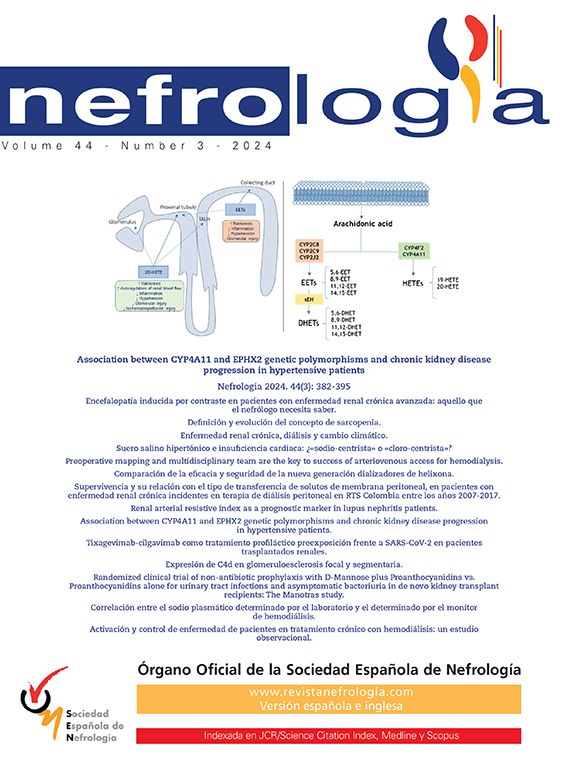Nefrologia 2015;35(1):XXX
10.3265/Nefrologia.pre2014.Oct.12762
Reply to Arrieta-Lezama et al.
Comment on Nefrologia 2015;35(1):XXX
Nefrologia 2014;34(4):458-68
To the Editor,
I understand that the originality of the secondary objective is highlighted. However, this is an original study in terms of the analysis having been based on individual data (not overall financial items) and that for the first time stage 4 and 5 chronic kidney disease data and kidney and pancreas transplantation have been presented.
The authors of the letter are right: price is confused with cost and this should have been explained better in the manuscript. It is a price allocated by the Canarian Health System, not a real price. The manuscript of Parra-Moncasi obtained real (public and private) prices and this parameter may be used and data combined.
We the authors, as highlighted in the Discussion, are the first to accept allocations that do not correspond to the real prices and that cannot be extrapolated to other regions. However, our tool was “the best possible”, and always the same for comparing therapeutic methods. Likewise, the prices of dialysis appear to be very balanced with respect to other series consulted, which leads us to believe that the deviation from the reality is minimal.
These data help us to understand the enormous differences between the price or cost of dialysis treatment compared with renal transplantation treatment or the enormous savings made by prolonging survival without the need for dialysis. In this regard, I believe that we have contributed original findings, with acknowledged limitations. One of the uses of the study is the cost difference between pre-dialysis (there are no previous cost data based on individual patients) and haemodialysis. Based on this, we can deduce that any measure that delays a patient beginning dialysis, let us say 12 months, could result in savings of 37,000 euros/patient/year. This is a solid argument for enhancing this area (consultant nephrologist, multidisciplinary chronic kidney disease consultations, etc.) with healthcare agents.
Cost allocation has been a major headache for us, both in terms of outpatient studies and hospitalisations for diagnosis-related groups (DRG). However, we understood it to be the best tool available for comparing hospitalisation costs between methods. We did not find data in the literature either. We allocated the corresponding DRG to all methods and as such there was no bias, although the prices were not real. The DRG are a tool for comparison between hospitals or regions, with their limitations, and they are currently the best option. Other studies reviewed make reference to overall items.
We welcome the proposal to expand registries to pre-dialysis stages and advance in the connection with primary care, the consultant nephrologist and conservative alternatives.
Conflicts of interest
The author declares that he has no conflicts of interest related to the contents of this article.





